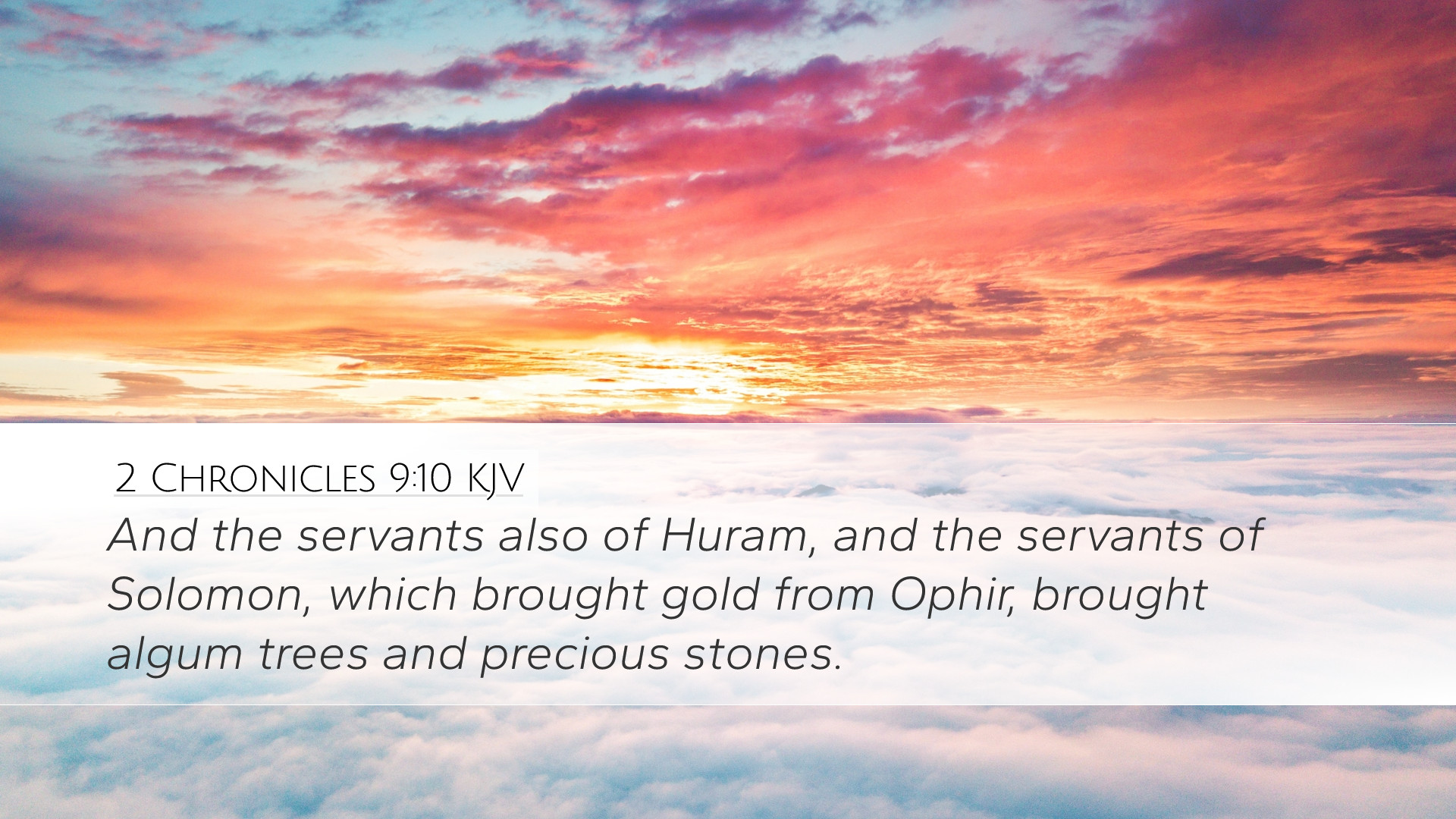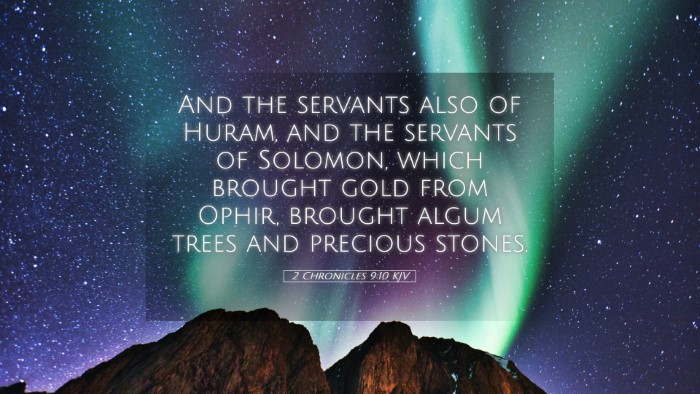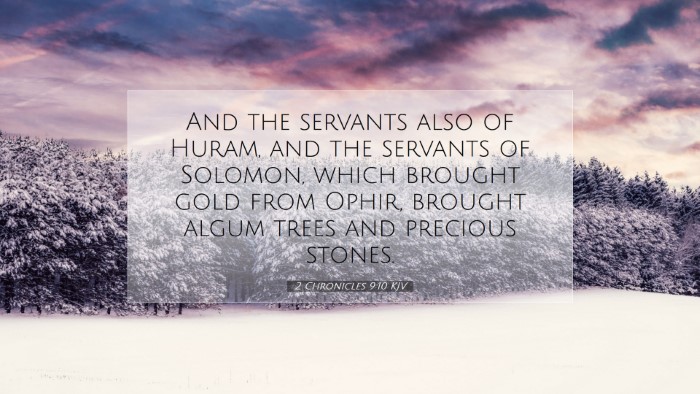Commentary on 2 Chronicles 9:10
2 Chronicles 9:10 states: “And the servants of Huram, and the servants of Solomon, which brought gold from Ophir, brought algum trees and precious stones.” This passage presents a significant moment in the biblical narrative, highlighting the grandeur of Solomon's reign and the wealth that characterized his kingdom. Below, we explore insights from prominent public domain commentaries to enrich understanding of this verse.
Historical Context
Matthew Henry emphasizes the significance of the wealth and resources brought to Solomon, which serve as an affirmation of his wisdom and prowess as a ruler. The collaboration with Huram of Tyre demonstrates a unique alliance that further contributed to the splendor of the Israelite kingdom. Solomon's accumulation of wealth exemplifies his divine favor and the fulfillment of God’s promises to him, as seen in earlier biblical texts.
The Gold from Ophir
Albert Barnes notes that the gold from Ophir was renowned for its purity and abundance. The specific mention of ‘Ophir’ signifies a source of luxury, reflecting the wealth that was known throughout the ancient world. The treasures brought from this region are symbolic of the divine blessings upon Solomon's reign. Furthermore, the mention of this particular location invites consideration of its cultural and geographical identity, which has been a subject of scholarly debate.
Symbolism of Algum Trees
In his commentary, Adam Clarke discusses the significance of the ‘algum trees,’ which were highly valued for their use in making musical instruments and luxurious palaces. The presence of such materials not only showcases the extravagant tastes of Solomon but also represents the glory of the Lord as it pertains to the worship and service in the temple. The trees serve as a testament to the opulence of worship in Solomon's era, providing insight into how material resources were utilized to honor God.
Implications for Worship
The collection of precious stones and rare woods reflects how the people of Israel understood and expressed their reverence for God. Matthew Henry mentions that the materials brought forth by Solomon's and Huram's servants can teach modern believers about the importance of bringing our best offerings to God. Engaging in worship is not merely a spiritual exercise; it is also an act that encompasses the physical and material aspects of life.
Applications for Leadership
From a leadership perspective, this verse provides profound insights into the expectations of a ruler. Solomon’s alliances and the wealth he attracted demonstrate that successful leadership involves collaboration and seeking wisdom in partnerships. Albert Barnes suggests that Solomon’s wisdom not only attracted the wealthy and powerful but also paved the way for establishing an enduring legacy of prosperity and peace for the nation. Faithful leaders are called to recognize the resources that God provides and use them wisely for His glory and the well-being of their communities.
Theological Reflections
This verse encapsulates a theological principle that God blesses those who faithfully seek Him. The treasures brought to Solomon underscore the biblical narrative of provision and stewardship. Adam Clarke brings out the importance of how these resources must be used in the service of God. Believers today can draw lessons from Solomon’s management of his wealth, ensuring that their own resources serve kingdom purposes.
Cross-Referencing Scriptural Themes
In analyzing 2 Chronicles 9:10, it is essential to cross-reference with other scriptures that discuss themes of wealth, divine favor, and service. For instance, the passages in 1 Kings 10 provide additional detail about the grandeur of Solomon’s court and his interactions with the Queen of Sheba, further illuminating the themes present in this verse.
Conclusion
As we conclude this commentary on 2 Chronicles 9:10, we see a rich tapestry of historical, symbolic, and theological insights woven into this narrative. From the collaboration with Huram to the lavish contributions to Solomon’s reign, the passage is a poignant reflection of God’s blessings and the expectations of grateful stewardship. These truths remain relevant today, challenging pastors, students, and scholars to consider their own offerings before God and how they might lead with wisdom and integrity in a world still in need of divine intervention.


